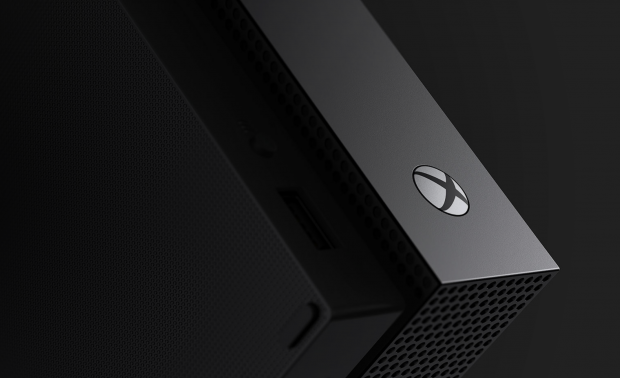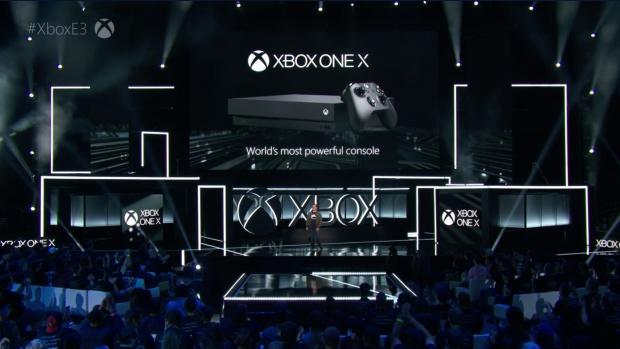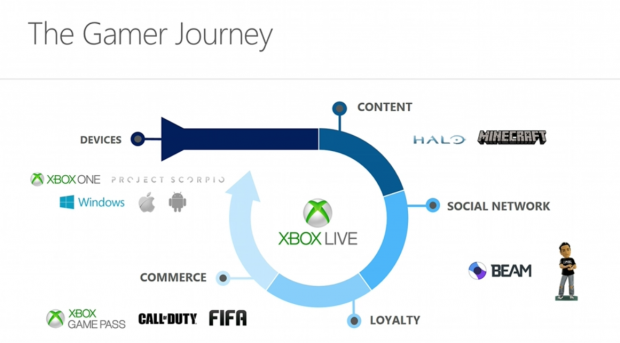Phil Harrison, who's watched the console games industry evolve over decades, shares his insights on console exclusives--and why Microsoft's Xbox division has so few of them.

Games industry professional Phil Harrison has enjoyed key leadership positions in both Sony (President of Sony Computer Entertainment Worldwide Studios in 2005) and Microsoft (Microsoft Game Studios in 2012) throughout the years, and is in a qualified position to weigh in on the market's paradigm shift away from platform games exclusivity. There was a time where both Xbox and PlayStation thrived on their respective first-party IPs and franchises, but higher and higher costs have softened the once-essential strategy, leading console-makers like Microsoft to focus more on cross-platform integration, monetization of live services, and third-party support over its own core franchises.
There was a time not so long ago that exclusives were guaranteed system sellers--the Halo: Combat Evolveds and Metal Gear Solids of older eras. But now the console landscape is dramatically different: third-party games from publishers like Activision, EA, and Ubisoft typically dominate, despite being used as content that fills in the spaces between major first-party releases.
Sony has still held true to the this tactical approach of exclusives, releasing strong content like Horizon: Zero Dawn and Uncharted on the platform, but Microsoft has evolved to embrace a multifacted dynamic that unifies Xbox consoles and Windows 10 powered PCs.

In a recent interview with Eurogamer, Phil Harrison was asked why Microsoft has so few first-party console exclusives. According to Harrison, Microsoft and Sony face higher costs to make specific first-party exclusives and the risk of reward isn't always high. Exclusives can be a gamble, especially unproven new IPs, and there's no guarantee it'll pay off; even when the risk is somewhat mitigated and softened with proven earners like microtransactions, the games can simply fail.
"Both Microsoft and Sony have the same challenge, which is the cost of development to compete has gone up so dramatically you really have to be launching on multiple platforms to have any chance of making money," Harrison said, highlighting the challenges, risks, and costs involved with this strategy.
"The traditional first-party business model of only making a game exclusively for your own device: the economics are really tough. I'm not saying they don't work but they don't work in as many cases as they used to."
While Harrison's words ring true, I think there's more to it than that. Microsoft has literally redefined the term "Xbox exclusives".

Read Also: Why Xbox LIVE is the center of Xbox, not consoles
Xbox is no longer a console-based platform. Xbox is now a service/platform/brand that transcends consoles and embraces PC--Microsoft has laid the foundations for future-proofing the Xbox brand by integrating it with PCs. This means that console-based exclusives don't have as much weight. First-party Xbox games typically release as cross-platform games on both Xbox One consoles and Windows 10 PCs.
As such, Xbox games are no longer "console exclusives" because Xbox isn't just a console any more.
Exclusives now include Windows 10 PCs and Xbox One consoles alike. Just take a look at Microsoft's E3 2017 Media Briefing showcase if you need a reminder of the company's current strategy.
Microsoft exemplified this strategy by announcing and showcasing five "exclusives" at E3 2017 that are coming to both Xbox One and Windows 10 PCs:
- Crackdown 3
- Forza Motorsport 7
- Sea of Thieves
- State of Decay 2
- Super Lucky's Tale
But Microsoft is also focusing more on third-party games and less on its own first-party content. The focus is there, and Microsoft absolutely is working with key AAA and indie developers to bring more exclusives to Xbox One consoles, but it's not the core target.
The new $499 Xbox One X console was made with this strategy in mind--the high-end 4K ready console will play all existing games better and is geared towards being the ultimate console that gives third-party developers more power and tools to push their games even further.
Microsoft also makes less first-party games simply because the Xbox One has a smaller install base. Microsoft has stopped releasing Xbox One sales so there's no definite estimate of per-date sales, but Sony has sold 60 million PlayStation 4 units to date, and plans to sell 18 million more this fiscal year to bring the PS4's total lifetime-to-date sales to 78 million.
Since the install base is smaller, Microsoft has reacted by ensuring the system's core framework, Xbox LIVE, is properly monetized so that consumers who already own the console are incentivized to pump more money into the platform via game sales, content, services--and more recently, monetized streaming via Mixer.
Microsoft knows that first-party IP isn't always a guaranteed system-seller--not any more. Gamers consume a dramatically different diet of content these days, and Redmond is eager to deliver new main courses in the form of games as well as services.
Furthermore, the smaller Xbox One install base means Microsoft will typically bring its games to the Windows Store or Steam on PC in an effort to sell more games. More platforms, after all, opens the door to more sales.
In short, there's a lot of dynamics at play here. Harrison's words are absolutely true, but there's so much more to the story than what the exec said.
While Sony can keep its momentum going with the exclusives approach for now, it may find itself in a corner with the next generation of systems. Sony lacks any kind of external future-proof platform to integrate PlayStation onto, and with the way the industry is going, that could be a massive problem for the Japanese games-maker.

